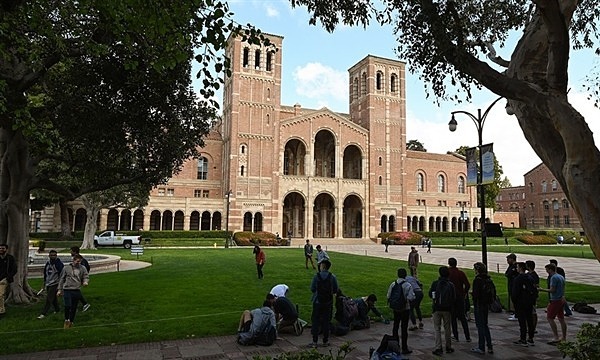US updates H-1B visa rules to expand skilled workforce
New regulations for the H-1B visa program, known as the “H-1B Modernization Rule,” came into effect on Jan. 17, 2025, three days before President Joe Biden’s term ends.
The updated rules aim to expand opportunities for specialized and highly skilled foreign workers, including international graduates from U.S. institutions, while also introducing measures to strengthen the program’s integrity.
The H-1B visa program enables U.S. employers to temporarily hire foreign workers with specialized degrees at the bachelor’s level or higher. Annually, approximately 85,000 H-1B visas are allocated, with demand consistently exceeding the quota. Most H-1B visa holders work in fields such as technology, engineering, healthcare, financial services, and education.
The new regulations, announced by U.S. Citizenship and Immigration Services (USCIS) Director Ur M. Jaddou, aim to provide more flexibility for employers while maintaining program integrity.
“The H-1B program was created by Congress in 1990, and there’s no question it needed to be modernized to support our nation’s growing economy,” Jaddou said in a statement posted on the U.S. Department of Homeland Security’s website.
“The changes made in today’s final rule will ensure that U.S. employers can hire the highly skilled workers they need to grow and innovate while enhancing the integrity of the program.”
According to ICEF Monitorpreviously, applicants needed a degree “directly related” to the job they were applying for. The updated rule broadens this definition to include degrees with a “logical connection” to the job duties. This change accommodates candidates with interdisciplinary degrees and reflects the increasingly nuanced roles in today’s job market.
The gap period between the F-1 student visa and the H-1B visa has been extended. Previously, F-1 holders had only 60 days to maintain legal status, often leading to complications if H-1B petitions were delayed. The new rule codifies an automatic “cap-gap” extension, allowing students to remain legally in the U.S. until April 1 while awaiting H-1B processing.
International entrepreneurs who own at least 50% of a business can now qualify for H-1B status under specific conditions. However, their visa validity will be limited to 18 months for the initial period and the first extension, compared to the three-year validity for standard H-1B visas.
Organizations that engage in research as a “fundamental activity,” rather than their “primary mission,” can now qualify for exemptions from the annual H-1B visa caps.
The updated rule also includes measures to prevent misuse of the H-1B program. Employers must provide evidence of genuine job openings and may face site visits and penalties if inaccuracies are discovered. These provisions aim to ensure that the program remains a reliable pathway for skilled workers while protecting its integrity.
Homeland Security Secretary Alejandro N. Mayorkas emphasized the importance of the changes: “These improvements to the program provide employers with greater flexibility to hire global talent, boost our economic competitiveness, and allow highly skilled workers to continue to advance American innovation.”
The H-1B Modernization Rule is designed to streamline hiring processes for employers while addressing challenges faced by international graduates and entrepreneurs. The rule’s structure also makes it more difficult for future administrations to reverse, as changes to federal regulations require a lengthy rulemaking process.
With these updates, the U.S. aims to better align its immigration policies with the evolving needs of its economy and labor market, ensuring that global talent can continue to contribute to innovation and growth.


Comments are closed.